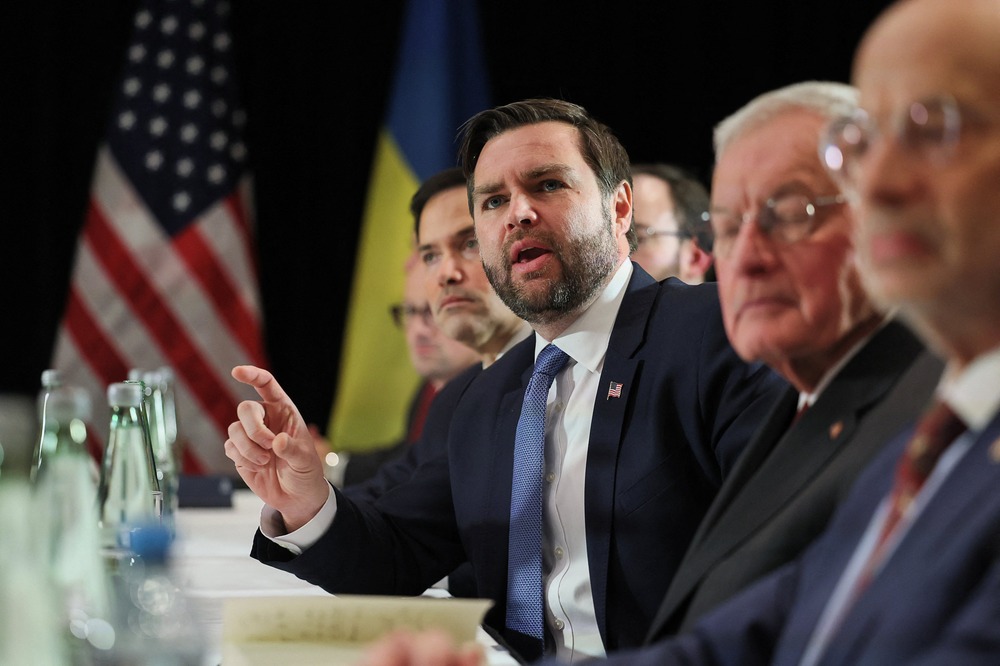
U.S. Vice President JD Vance and Secretary of State Marco Rubio attend a bilateral meeting with Ukrainian President Volodymyr Zelenskyy (not pictured) on the sidelines of a security conference in Munich Feb. 14, 2025. (OSV News/Reuters/Leah Millis)
U.S. Vice President JD Vance will be in Rome April 18 and has meetings planned with Italian Prime Minister Giorgia Meloni and with Cardinal Pietro Parolin, the Vatican secretary of state, his office said.
Although the visit had been rumored for weeks and was published on Meloni's official schedule days early, the vice president's office confirmed the trip April 16.
The announcement said Vance "and the second family" will travel to Italy and India April 18-24.
"The vice president will discuss shared economic and geopolitical priorities with leaders in each country," the announcement said.
No mention was made of possible topics of discussion for Vance's meeting with Cardinal Parolin.
The announcement did not provide a detailed schedule, but Vance, who became Catholic in 2019, could attend the Good Friday Liturgy of the Lord's Passion in St. Peter's Basilica April 18 or Easter morning Mass in St. Peter's Square April 20.
The Vatican press office had said April 15 that it had no information to share about Vance's trip, but if the vice president were to participate in one of the liturgies, it would let people know.
Advertisement
Pope Francis, who is recovering from respiratory infections, held a brief private meeting with Britain's King Charles III and Queen Camilla April 9, but other heads of state who have visited the Vatican since he was released from the hospital met only with Cardinal Parolin and other officials of the Secretariat of State.
At the National Catholic Prayer Breakfast in Washington in late February, Vance had said he was "surprised" by Francis' criticism of the Trump administration's immigration policy.
In a letter to the U.S. bishops a few weeks earlier, Francis had praised the bishops for their efforts to assist migrants and refugees and repeated his criticism of the Trump administration's declared plans to institute "mass deportations."
Francis had said, "The rightly formed conscience cannot fail to make a critical judgment and express its disagreement with any measure that tacitly or explicitly identifies the illegal status of some migrants with criminality."





